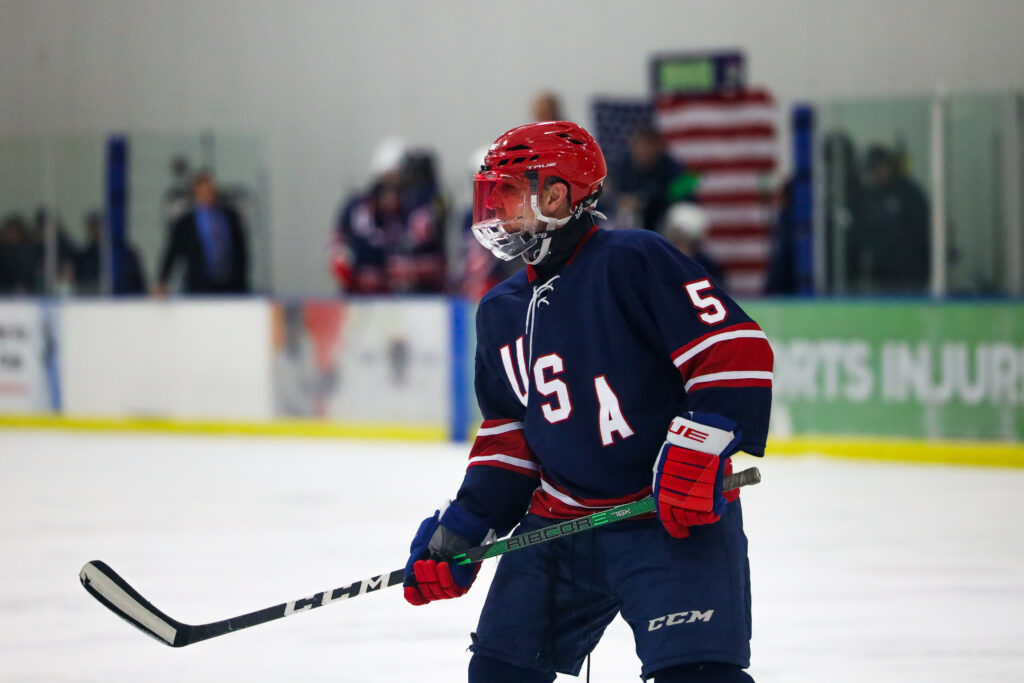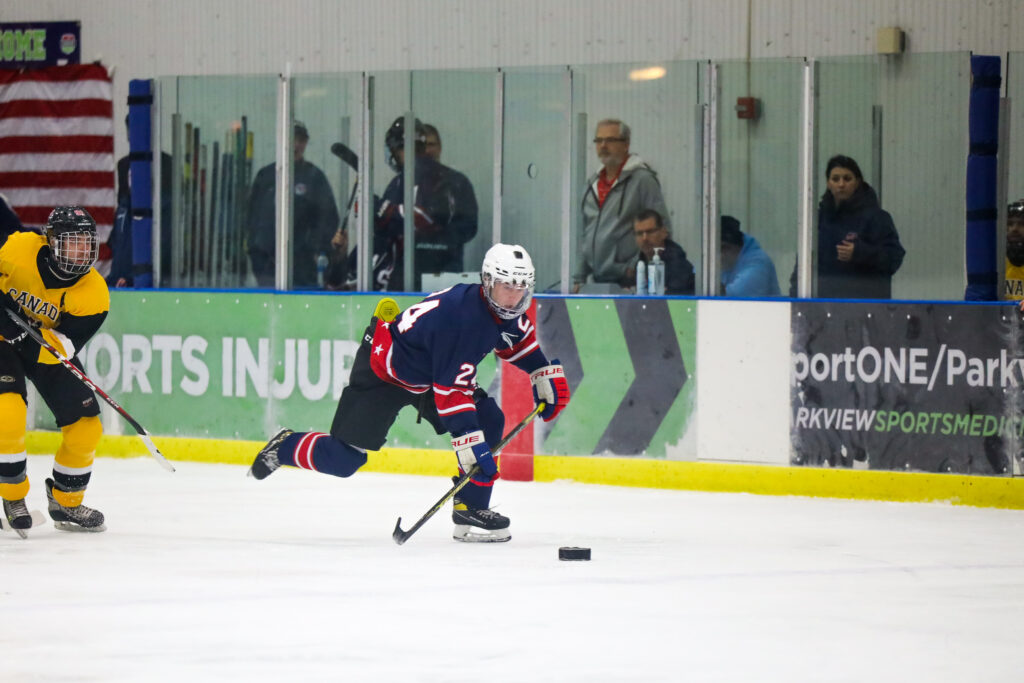Blind athletes from around the United States took part in the annual Blind Hockey Classic this past October in Fort Wayne.

For nearly 80 years, the Turnstone Center for Children and Adults with Disabilities has been Northeast Indiana’s only free-standing nonprofit organization providing supportive services for people with disabilities.
Located in Fort Wayne, Turnstone is led by a passionate board of directors and an experienced core of licensed therapists, fitness specialists, social workers and educators. Their mission is to create possibilities for disabled individuals by empowering them through therapeutic, educational, wellness and recreational programs.
Adaptive sports play a major role in achieving that mission. Over 15 sports and recreational activities allow Turnstone to serve disabled athletes of all ages and skill levels, from beginners to Paralympians.
One of those sports is goalball, where teams three to a side attempt to roll a ball with bells into an opponent’s net. The U.S. Men’s and Women’s paralympic Goalball Teams live and train at the center, which has been designated as a Gold Level Paralympic Sports Club.
“Primarily, we are known for the sport of goalball,” explained Rena Shown, CFRM, Turnstone’s Chief of Development and Strategic Partnerships. “We provide a high-performance coach to help them work out and compete at this elite level. That’s a benefit these athletes get from the partnership we have with the United States Association of Blind Athletes (USABA), the governing body for the sport.”
Shown, who earned a bachelor’s degree in political science from Eastern Kentucky University and is working on a master’s in global business administration through Tufts University, has been with Turnstone for nearly six years. The center partners with Fort Wayne’s visitors bureau to bid on adaptive sports tournaments. One of those bids was submitted to USA Hockey for its Blind Hockey Classic, an annual nationwide event featuring blind athletes of different skill levels. The bid was accepted, and the 2022 Blind Hockey Classic took place October 21-23 at Parkview Icehouse.
Turnstone is no stranger to adaptive hockey. Earlier this year, the center hosted the Development team for the U.S. Women’s Sled Hockey Program.
“We’re open to host not just blind hockey but other disabled divisions in hockey as well.”
One of the sponsors for the Blind Hockey Classic was the Foreseeable Future Foundation, which funded the cost of ice time at the rink. David Jones, a Turnstone board member, had recently become acquainted with Foreseeable Future’s CEO Griffin Pinkow.
“We really synergized over ways we thought we could partner and work together and were patient and waited for the right opportunity,” Shown said. “Blind hockey presented itself as an opportunity for us to elevate the sport and help them accomplish some of their goals, which is growing the sport of blind hockey throughout the United States.”
Blind hockey was first played in the U.S. in 2014, although the sport has been popular in Canada since the 1970’s. It’s similar to regular hockey with one main difference: all players are legally blind. The inaugural Blind Hockey Classic took place in St. Louis last year.
Athletes for this year’s Classic in Fort Wayne were divided into three categories: beginner, intermediate and advanced. Participants played three-on-three matches segmented into three 15-minute periods. They also spent time developing their skills, particularly at the beginner level.
Over 50 athletes of all ages took part in the event, which also featured a three-match series between the U.S. and Canadian Blind Hockey national teams throughout the weekend. While the Canadians swept all three matches, the U.S. Team put up a valiant effort, according to Shown.

“Team USA did really well and I know the coach was pleased with how the athletes performed. They were very competitive.”
The event received extensive television news coverage, and Shown was pleased with the level of enthusiasm demonstrated by all who attended.
“There was an interest and a buzz around the arena, which had other games and visitors from the community on the sheets of ice we weren’t using. It sparked a lot of conversation and interest in the sport. That, to me, was a real highlight.”
The site for next year’s Blind Hockey Classic has not been announced, but Shown is hopeful her city can play host to another in the future. Meanwhile, the center is looking forward to other adaptive sporting activities including a power soccer tournament, wheelchair rugby and wheelchair basketball events.
“We are in the full swing of things when it comes to adaptive sports.”
To find out more about Turnstone and its programs, visit their website: https://turnstone.org/
